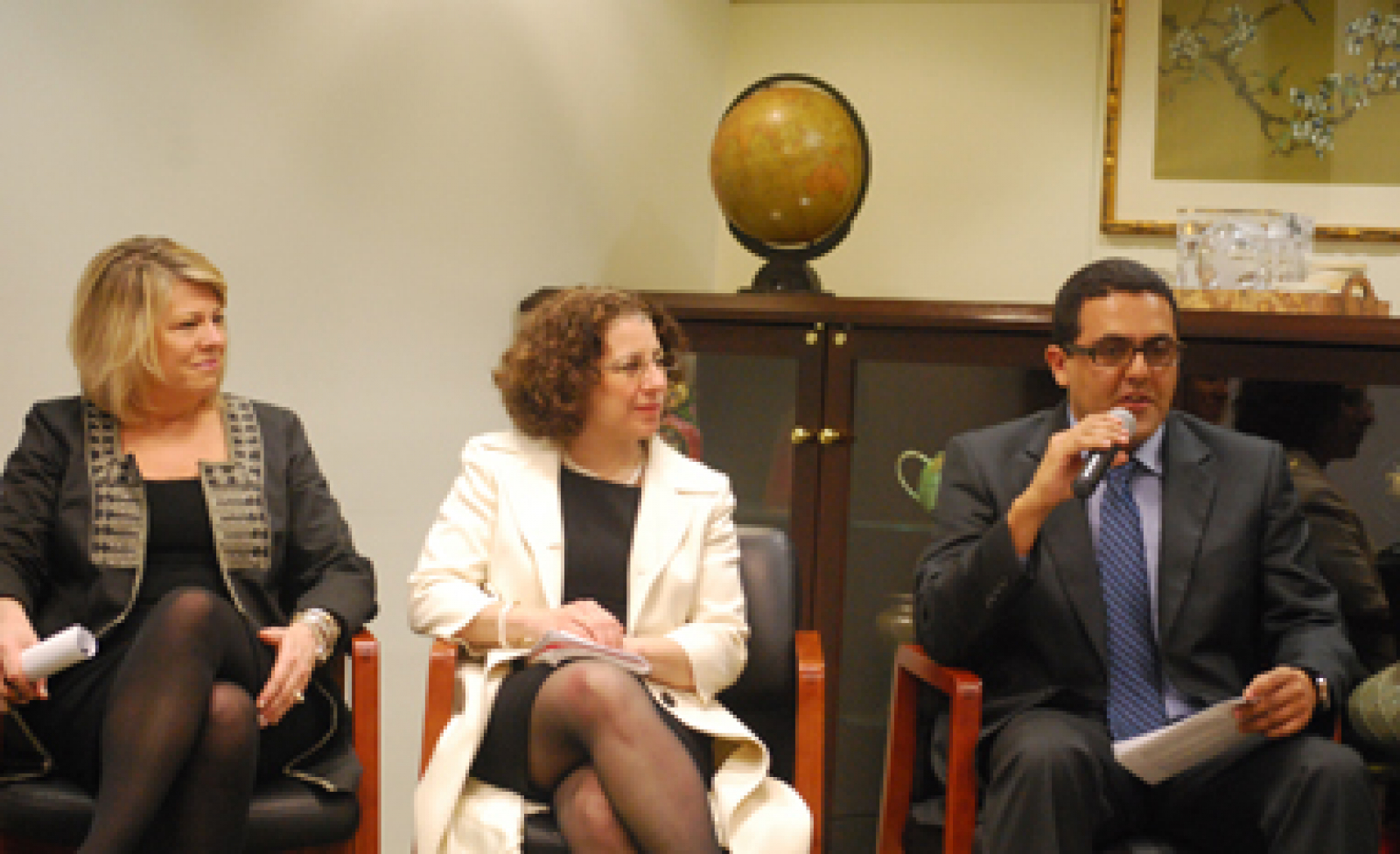
SHARE
The 10 million Roma living in Europe make up the fastest growing ethnic group on the continent and face disproportionate challenges from poverty to violence. Today NDI celebrated the culture and achievements – and highlighted the plight – of these unique European people, commonly called “gypsies,” in honor of the 40th anniversary of International Roma Day.
The Institute hosted an event in Washington featuring Stanislav Daniel, a Romani activist from Slovakia and NDI trainee, who stressed the importance of using this day to send a message. “We cannot ignore that there are Roma living in Europe today whose daily lives are threatened by violence and harassment,” he said.
The discussion included representatives from the Open Society Institute and the U.S. State Department’s Bureau of Democracy, Human Rights and Labor, as well as other Roma activists and policy experts. In addition, NDI used the occasion to debut a short public awareness film, “Who Are the Roma?” with original music by Academy Award winning composer Hans Zimmer.
The Roma comprise a sizeable and growing percentage of the population in Central and Eastern Europe — up to 10 percent in some countries — but they are largely ostracized from mainstream society and excluded from political decision-making. Despite the political liberalization and economic development of the post-Communist era, Roma have not participated in their countries' democratic institutions to address the economic, social and human rights problems that afflict their communities.
Roma are routinely denied basic human rights and lack access to such vital state services as health care and education. As a result:
- Roma have a mortality rate three times higher than the rest of the Central and Eastern European population;
- 26 percent of the Roma population in Central and Eastern Europe are completely illiterate; and
- 55 percent of Roma girls in Romania have their first pregnancy before the age of 18.
Slowly, however, young Roma activists are working to change the status quo. With help from groups like NDI, many Roma are now actively raising their voices politically to ensure the protection of their rights.
NDI has been working with Roma throughout central and Eastern Europe since 2003 to help them acquire the skills to compete for elected office and advocate for change at all levels of government. Last fall, a record 29 Roma mayors were elected in Slovakia and a Roma woman now represents Hungary in the European Parliament.
NDI’s work with Roma has been made possible primarily by the support of the National Endowment for Democracy and the Open Society Institute.
Related:
Pictured Above:Stanislav Daniel (right), a Romani activist, speaks at the event while NDI’s Shari Bryan (left to right) and Catherine Messina Pajic listen.
Published April 8, 2011


